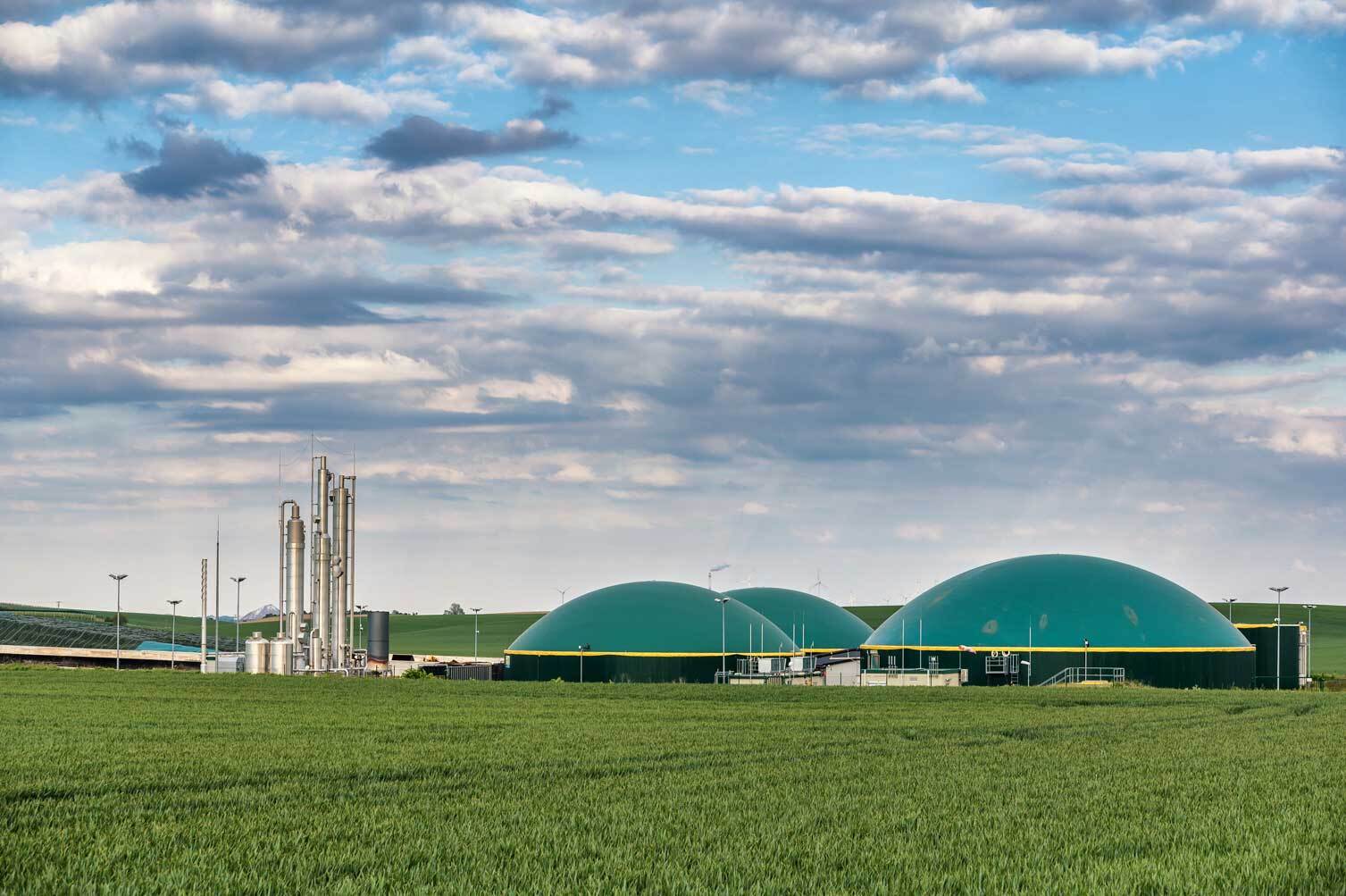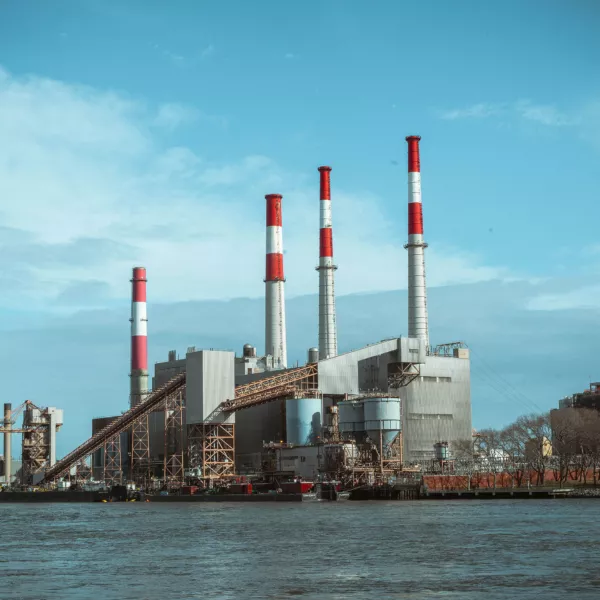Terpenes and Siloxanes
About
Biogas and biomethane play a key role in the global strategy to protect our planet by switching from fossil fuels to greener energy sources. DESOTEC’s sustainable mobile filtration services purify biogas from terpenes and siloxanes. This enables biogas to be upgraded to biomethane, which is a sustainable fuel. Before using biogas to power machinery or upgrading it into biomethane, terpenes, and siloxanes must be removed to protect equipment and workers’ health. DESOTEC's sustainable full-service mobile filtration solutions will help your company produce top-quality biofuel for a healthier and greener future.
What Are Siloxanes and Terpenes?
Biogas and biomethane must reach consistently high standards. Yet, because they’re derived from organic waste, they contain impurities. DESOTEC has the solution. Our filters handle a range of contaminants, including two of the most common: siloxanes and terpenes.
Siloxanes are volatile liquid compounds that do not biodegrade easily. Siloxanes are used in cosmetics, deodorants, water repellents, food additives, and soaps, and thus are often found in the biogas stream produced at wastewater treatment plants (WWTPs).
Terpenes usually come from the fermentation of green waste, including fruit, vegetables, and agricultural by-products. They can also be derived biosynthetically from isoprene for use as fragrances in cosmetics.


Filtering Siloxanes from Biogas
Every company wants to protect its machinery and equipment, reducing maintenance costs and repair bills. Yet, siloxanes generate abrasive silica (sand-like) deposits when combusted in machinery such as combined heat and power engines (CHP). If these sandy deposits exceed the manufacturer’s stated limits, they reduce the lifespan of this important and expensive equipment.
DESOTEC offers a simple solution. Our filters purify the biogas stream from siloxanes, which means it can be fed into a CHP to produce low-carbon energy. Because other compounds, such as hydrogen sulfide (H₂S), are likely to be present in the biogas stream, multiple filters can be placed in series.
Filtering Terpenes from Biomethane
We all love the smell of Christmas trees, which are produced by natural terpenes. In high concentrations, however, these compounds are an odor nuisance for workers and neighboring residents. So, it’s essential to purify biogas from terpenes to keep the air smelling fresh.
Additionally, removing terpenes is necessary to protect the membranes used to upgrade biogas into biomethane and prevent gaskets and piping systems from corrosion.
DESOTEC is here to help. Our mobile activated carbon filters adsorb terpenes and siloxanes, allowing biogas to be upgraded into biomethane. The biogas can then be injected into the national grid or converted into compressed natural gas (Bio-CNG) or liquified natural gas (Bio-LNG) for use as transport fuel.
Biogas and biomethane play a key role in the global strategy to protect our planet, by switching from fossil fuels to greener energy sources. DESOTEC’s sustainable mobile filtration services filter biogas from terpenes and siloxanes. This enables biogas to be upgraded to biomethane, which is a sustainable fuel.
Helping you comply
Legislation governing air quality (including emissions of volatile organic compounds (VOCs), terpenes, and siloxanes) is becoming increasingly stringent. DESOTEC filters are modular, so they can easily be adapted to help you reach lower limits, thus future-proofing your company.
Odor control tends to be governed at a national level. The Nordics have especially strict regulations, but other countries are following suit.
Manufacturers set guidelines for using their machinery, including CHP engines. If you exceed their stated limits for terpenes and siloxanes, you will invalidate your warranty. By installing DESOTEC filters, you extend the lifespan of your equipment and cut your costs.
How We Help You
DESOTEC Sustainable Mobile Filtration Solutions
DESOTEC is proud to help companies produce quality biogas and biomethane to aid in the shift to climate-friendly energy. Activated carbon is certified as the Best Available Technology (BAT) for upgrading biogas into biomethane.
Our filters are simple to install and replace, meaning that costly downtime is minimized. The filters are easy to operate, so you don’t need expert personnel on-site. DESOTEC experts are just a phone call away, 24/7/365.
Our full-service solutions include handling filtration waste. All adsorbed molecules are destroyed, and carbon is reactivated wherever possible. This circular solution is both cost-effective and sustainable, making your company’s practices more profitable and greener.
DESOTEC helped us upgrade our biogas stream, making it usable in the main gas grid. Thanks to their flexible solution, we were able to adapt quickly.
Biogas Impurities? Learn How to Remove Them!
The production of biogas and biomethane is an important green energy source. However, biogas and biomethane often contain impurities, such as H2S and VOCs, which negatively affect the gas quality or damage your equipment. This e-book explains how activated carbon filtration solutions can purify pollutants in biogas and biomethane plants.
Download our ebookBiogas Impurities? Learn How to Remove Them!
The production of biogas and biomethane is an important green energy source. However, biogas and biomethane often contain impurities, such as H2S and VOCs, which negatively affect the gas quality or damage your equipment. This e-book explains how activated carbon filtration solutions can purify pollutants in biogas and biomethane plants.
Download our ebookOur Filtration Solutions
-
Industries we help
We partner with companies in a variety of sectors, adapting our modular filtration solutions to your unique needs. -
Our unique service
Our closed-loop, full-service model is as unique as your business needs. We’ll define the right filtration setup and safely recycle filtration waste, making it easy to go green. -
Your Sustainability Journey
Like you, we care about protecting our air, water, and soil for future generations. Our filtration solutions help you meet environmental standards, reducing your carbon footprint.


